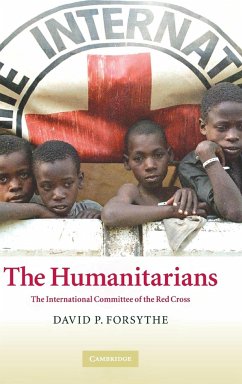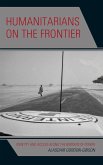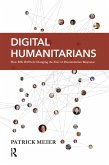Short description/annotation
Provides a comprehensive overview of the International Committee of the Red Cross from its origins up to the present day.
Main description
The International Committee of the Red Cross (ICRC) coordinates the world's largest private relief system for conflict situations. Its staff operates throughout the world, and in recent years the ICRC has mounted large operations in the Balkans and Somalia. Yet despite its very important role its internal workings are mysterious and often secretive. This book examines the ICRC from its origins in the mid-nineteenth century up to the present day, and provides a comprehensive overview of a unique private organisation, whose governing body remains all-Swiss, but which is recognized in international law as if it were an inter-governmental organization. David Forsythe focuses on the policy making and field work of the ICRC, while not ignoring international humanitarian law. He explores how it exercises its independence, impartiality, and neutrality to try to protect prisoners in Iraq, displaced and starving civilians in Somalia, and families separated by conflict in the Israeli-Palestinian conflict.
Table of contents:
Preface; Introduction; Part I. Historical Analysis: 1. The ICRC during its early years; 2. The ICRC during the Cold War; 3. The ICRC after the Cold War; 4. The ICRC and the US 'war' on terrorism; Part II. Policy Analysis: 5. ICRC principles and policies; 6. ICRC structure and management; 7. The ICRC and international humanitarian law; Part III. Conclusion: 8. The ICRC and Red Cross humanitarianism; Annex A: The ICRC and the Red Cross Movement; Annex B: The ICRC and Selected Private Relief Agencies; Annex C: The ICRC: One of the Big Four Relief Agencies; Annex D: The ICRC and Selected Advocacy Groups; Annex E: The ICRC Organizational Chart; Bibliography.
Hinweis: Dieser Artikel kann nur an eine deutsche Lieferadresse ausgeliefert werden.
Provides a comprehensive overview of the International Committee of the Red Cross from its origins up to the present day.
Main description
The International Committee of the Red Cross (ICRC) coordinates the world's largest private relief system for conflict situations. Its staff operates throughout the world, and in recent years the ICRC has mounted large operations in the Balkans and Somalia. Yet despite its very important role its internal workings are mysterious and often secretive. This book examines the ICRC from its origins in the mid-nineteenth century up to the present day, and provides a comprehensive overview of a unique private organisation, whose governing body remains all-Swiss, but which is recognized in international law as if it were an inter-governmental organization. David Forsythe focuses on the policy making and field work of the ICRC, while not ignoring international humanitarian law. He explores how it exercises its independence, impartiality, and neutrality to try to protect prisoners in Iraq, displaced and starving civilians in Somalia, and families separated by conflict in the Israeli-Palestinian conflict.
Table of contents:
Preface; Introduction; Part I. Historical Analysis: 1. The ICRC during its early years; 2. The ICRC during the Cold War; 3. The ICRC after the Cold War; 4. The ICRC and the US 'war' on terrorism; Part II. Policy Analysis: 5. ICRC principles and policies; 6. ICRC structure and management; 7. The ICRC and international humanitarian law; Part III. Conclusion: 8. The ICRC and Red Cross humanitarianism; Annex A: The ICRC and the Red Cross Movement; Annex B: The ICRC and Selected Private Relief Agencies; Annex C: The ICRC: One of the Big Four Relief Agencies; Annex D: The ICRC and Selected Advocacy Groups; Annex E: The ICRC Organizational Chart; Bibliography.
Hinweis: Dieser Artikel kann nur an eine deutsche Lieferadresse ausgeliefert werden.
'David Forsythe's study unlocks many of the mysteries about the International Committee of the Red Cross. Based on previously unexploited sources, he provides a critical yet respectful analysis of this most important humanitarian organisation.' William A. Schabas, Director, Irish Centre for Human Rights, National University of Ireland, Galway








